What Should Preschoolers Know Before Kindergarten: Skills for a Smooth Transition
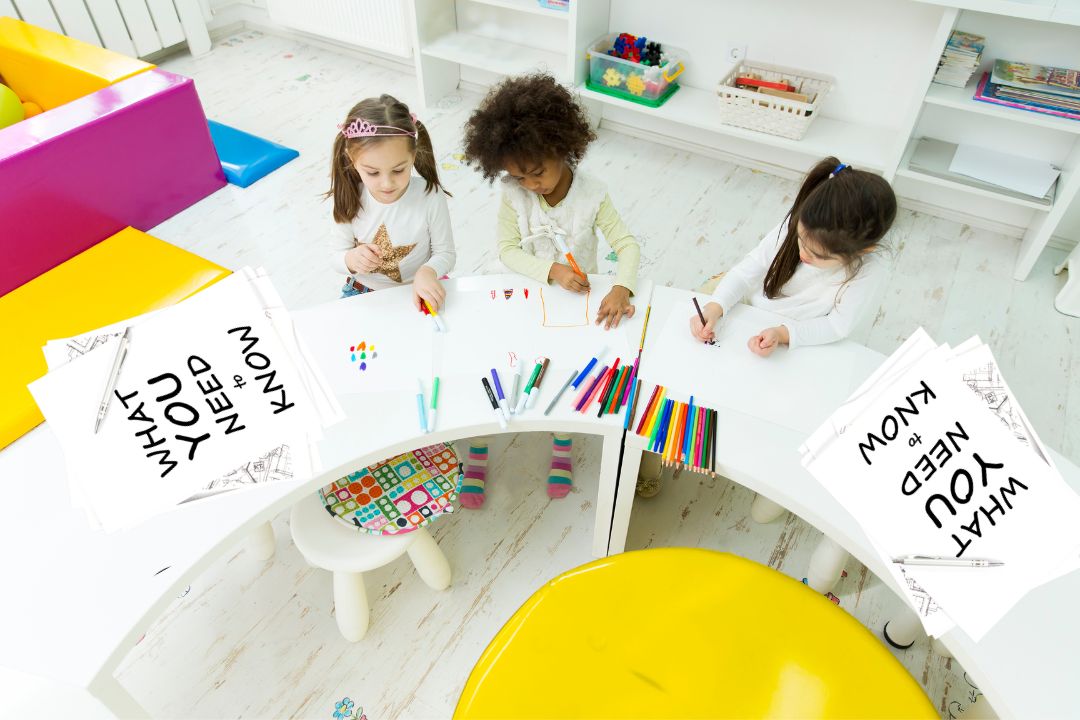
Preschoolers should know basic social and academic skills before entering kindergarten, including counting, recognizing letters and shapes, following directions, and interacting with others. Preschool is an exciting time for young children as they begin their educational journey.
It serves as a crucial stepping stone before entering kindergarten, where they will receive more structured learning. Therefore, it is important for preschoolers to acquire certain skills and knowledge that will help them thrive in their new academic environment. This article will explore the essential things that preschoolers should know before starting kindergarten.
By focusing on both social and academic aspects, parents and educators can ensure that children have a solid foundation to build upon in their early years of schooling. So, let’s take a closer look at what preschoolers should know before transitioning to kindergarten.
Assessing Essential Developmental Milestones
Preschoolers should have a solid foundation in essential developmental milestones before starting kindergarten. This includes social and emotional skills, language and communication abilities, cognitive and problem-solving skills, as well as physical coordination and motor skills. By assessing these milestones, parents and educators can ensure children are ready to succeed in their educational journey.
Before entering kindergarten, preschoolers should have reached certain developmental milestones to ensure a smooth transition to formal education. Assessing these milestones is crucial in determining a child’s preparedness for kindergarten. Here, we will explore three key areas of development that are essential to evaluate:
- Cognitive Abilities And Problem-solving Skills
- Language Proficiency And Basic Literacy
Social And Emotional Readiness For A Classroom Setting
By assessing these areas, parents and educators can gain insights into a child’s overall readiness for kindergarten.
Cognitive Abilities And Problem-solving Skills
Cognitive development in preschoolers lays the foundation for future learning. It involves the acquisition of skills such as memory, attention, reasoning, and problem-solving. When assessing a child’s cognitive abilities, educators and parents should consider the following indicators:
- The capacity to understand and follow simple instructions
- Recognition of numbers, colors, shapes, and basic concepts
- Problem-solving skills, including the ability to find solutions independently
- An interest in puzzles and games that require logical thinking
- Developing mathematical concepts like counting and basic addition/subtraction
Language Proficiency And Basic Literacy
Language development is crucial as preschoolers prepare for kindergarten. Assessing a child’s language proficiency and basic literacy skills can help gauge their readiness for formal education. Consider the following indicators when evaluating a child’s language and literacy abilities:
- Effective communication skills, including clear speech and understanding of simple instructions
- Ability to recognize and name letters of the alphabet
- Basic phonemic awareness, including identifying and producing rhyming words
- Emerging reading skills, such as recognizing sight words and understanding simple written sentences
- Adequate vocabulary development and the ability to express thoughts and ideas verbally
Social And Emotional Readiness For A Classroom Setting
Entering kindergarten requires children to adapt to a structured classroom environment and engage in social interactions with peers and teachers. Assessing a child’s social and emotional readiness helps ensure they are prepared for this new setting. Consider the following indicators when evaluating a child’s social and emotional development:
- Ability to work independently and follow directions
- Effective communication and interaction with peers
- Recognition and management of emotions, including frustration and anger
- Participation in group activities and sharing with others
- Developing empathy and showing consideration for others
Assessing these essential developmental milestones allows parents and educators to understand a preschooler’s preparedness for kindergarten. By evaluating a child’s cognitive abilities, language proficiency, and social-emotional readiness, we can help ensure a smoother transition to formal education. It is important to remember that each child develops at their own pace, and early intervention and support can make a significant difference in their kindergarten readiness.

Credit: www.pinterest.com
Transitioning From Preschool Activities
As preschoolers prepare to enter kindergarten, it’s essential to help them transition from the free-spirited world of preschool activities to a more structured learning environment. This transition is crucial for their success in kindergarten and beyond. In this article, we will explore three key aspects of this transition: having realistic expectations for kindergarten routines, adapting to structured learning environments, and developing self-sufficiency in daily tasks.
Realistic Expectations For Kindergarten Routines
Kindergarten routines require preschoolers to adjust to a more structured schedule than they have experienced in preschool. It’s important for parents and teachers to establish realistic expectations for these routines, understanding that every child is unique and may take some time to adapt. Here are a few strategies that can help:
- Gradual transition: Start gradually introducing a more structured routine at home in the weeks leading up to kindergarten. This can involve setting bedtimes, meal times, and playtime schedules.
- Practice independence: Encourage your child to dress themselves, pack their bag, and complete simple tasks independently. This will foster a sense of responsibility and prepare them for the expectations of kindergarten.
- Establish clear expectations: Clearly communicate the daily routine to your child, utilizing visual aids such as timetables or charts. This visual representation will help them understand and follow the routine more easily.
Adapting To Structured Learning Environments
Preschoolers are used to a play-based, informal learning environment. As they transition to kindergarten, they must adapt to a more structured academic setting. Here are some tips to help them navigate this change:
- Emphasize listening skills: Encourage your child to actively listen when instructions are given. This skill will not only help them in the classroom but also facilitate their understanding of lessons and activities.
- Develop attention span: Engage your child in activities that require sustained concentration, such as puzzles, reading books, or completing simple tasks. This will help strengthen their attention span, preparing them for longer periods of focused learning.
- Promote group interaction: Encourage your child to participate in group activities and playdates. This will familiarize them with cooperative learning and help them develop social skills necessary for classroom settings.
Developing Self-sufficiency In Daily Tasks
In kindergarten, children are expected to perform certain daily tasks independently. As preschoolers transition to this level of self-sufficiency, here are some areas worth focusing on:
| Tasks | Tips |
|---|---|
| Dressing | Encourage your child to practice dressing themselves, starting with simple tasks like putting on socks and gradually progressing to more complex clothing items. |
| Toileting | Teach your child proper toileting habits, including how to use the restroom independently, proper handwashing techniques, and managing personal hygiene. |
| Mealtime | Let your child practice using utensils, opening lunch containers, and cleaning up after meals. This fosters independence and teaches them essential table manners. |
By focusing on these areas, parents and educators can help preschoolers develop the skills they need to thrive in kindergarten. Remember, each child progresses at their own pace, so patience and understanding are key during this transition period.
Mastering Key Academic Skills
As preschoolers prepare to enter kindergarten, it becomes crucial for them to develop a solid foundation in key academic skills. These skills lay the groundwork for their future academic success and help them adjust seamlessly to the kindergarten curriculum. By focusing on mastering areas such as recognizing numbers, developing fine motor skills, and understanding primary colors and shapes, preschoolers gain a head start in their educational journey.
Recognizing Numbers And Counting Basics
One of the fundamental academic skills that preschoolers should acquire before entering kindergarten is the ability to recognize numbers and understand basic counting principles.
- Preschoolers should be able to identify numbers from 1 to 10 and understand their sequential order.
- They should grasp the concept of one-to-one correspondence, which involves matching each object to a specific number.
- Counting objects accurately is another crucial skill that preschoolers need to master, as it helps develop their numeracy skills.
By recognizing numbers and understanding counting basics, preschoolers gain the necessary mathematical foundation that sets them up for success in kindergarten and beyond.
Grasping Pre-writing And Fine Motor Skills
Developing pre-writing and fine motor skills is essential for preschoolers as it paves the way for proper handwriting and coordination.
- Preschoolers should be able to hold a pencil or crayon correctly, using the tripod grip.
- They should practice tracing lines and shapes, helping them refine their hand-eye coordination and control.
- Creating simple strokes and shapes, such as straight lines, circles, and squares, aids in the development of their fine motor skills.
By mastering pre-writing and fine motor skills, preschoolers enhance their ability to write legibly and manipulate objects with precision, which are essential skills for success in kindergarten and throughout their academic journey.
Understanding Primary Colors And Shapes
Another academic skill that preschoolers need to grasp before kindergarten is understanding primary colors and basic shapes.
- Preschoolers should be able to identify and name primary colors, including red, blue, and yellow.
- They should become familiar with basic shapes, such as circles, squares, triangles, and rectangles.
- Recognizing these colors and shapes in their surroundings helps preschoolers develop visual discrimination skills.
By understanding primary colors and shapes, preschoolers can engage in activities that promote creativity, enhance visual perception, and lay the foundation for more advanced learning in kindergarten.
Social Skills For Classroom Harmony
When it comes to preparing preschoolers for kindergarten, focusing on their social skills is crucial for classroom harmony. Building strong social skills helps children interact effectively with their peers and adults, fostering a positive learning environment. In this blog post, we will discuss key social skills that preschoolers should develop before entering kindergarten. This section will specifically highlight the importance of sharing, cooperation, taking turns, following instructions and classroom rules, as well as communication with peers and adults.
Sharing, Cooperation, And Taking Turns
Sharing, cooperation, and taking turns are fundamental social skills that help preschoolers navigate the classroom environment smoothly. By teaching children the importance of sharing toys, materials, and even their attention, we encourage them to consider the needs and feelings of others. Cooperation allows preschoolers to work together on projects, developing teamwork and problem-solving abilities. Taking turns teaches patience and respect for others’ opinions and ideas. To enhance these skills, parents and teachers can:
- Encourage children to share toys and materials during playtime.
- Provide opportunities for collaborative activities that require cooperation.
- Model taking turns during group play or discussions.
Following Instructions And Classroom Rules
Understanding and following instructions is vital for a preschooler’s success in kindergarten. By adhering to classroom rules, children learn self-discipline and respect while creating a harmonious learning environment. Consider these strategies to reinforce these skills:
- Provide clear and concise instructions when assigning tasks or activities.
- Establish consistent rules and expectations in the classroom.
- Offer positive reinforcement when children follow instructions and demonstrate good behavior.
Communication With Peers And Adults
Effective communication is key to building relationships and resolving conflicts. Preschoolers should be able to express their thoughts, needs, and emotions clearly to both their peers and adults. Here are some ways to promote healthy communication skills:
- Encourage children to use words to express their needs and emotions instead of resorting to physical actions.
- Provide opportunities for children to engage in discussions with their peers and adults, encouraging active listening and turn-taking.
- Model proper communication by using positive language and active listening when interacting with children.
Activities That Support Essential Skills
Preschoolers can develop essential skills through engaging activities such as storytelling, puzzles, and building blocks, ensuring they are better prepared for kindergarten.
Interactive Reading And Storytelling
Reading and storytelling play a crucial role in a child’s development, especially when it comes to preparing them for kindergarten. Interactive reading and storytelling activities not only provide preschoolers with a fun and engaging experience, but they also strengthen their language and communication skills, enhance their cognitive abilities, and foster a love for reading.
One effective activity to support interactive reading and storytelling is creating a reading nook at home. This cozy corner can be filled with age-appropriate books, comfortable seating, and soft lighting to create a welcoming atmosphere that encourages reading. By spending time in this dedicated space, children will develop a positive association with books and reading.
Another activity that promotes interactive reading is engaging children in discussions about the stories they hear. Encourage them to ask questions, share their thoughts, and make predictions about the plot and characters. This interactive approach not only improves their comprehension skills but also enhances their critical thinking abilities.
Additionally, incorporating props, puppets, and costumes during storytelling sessions adds an element of excitement and creativity. Children can actively participate in the storytelling process by acting out scenes or creating their own alternative endings. Such hands-on activities not only make reading and storytelling more enjoyable but also encourage imagination and enhance problem-solving skills.
Encouraging Curiosity With Science And Nature
Nurturing children’s curiosity about the world around them is essential in preparing them for kindergarten. Science and nature activities not only ignite their natural sense of wonder but also promote cognitive development, problem-solving skills, and an understanding of basic scientific concepts.
One simple yet effective science activity is conducting simple experiments at home. This can include exploring how plants grow by planting seeds and observing their development, or creating a volcano from baking soda and vinegar to demonstrate chemical reactions. Such hands-on experiments engage children’s senses and encourage them to ask questions, make predictions, and draw conclusions.
Nature walks and outdoor exploration are great ways to introduce children to the wonders of the natural world. Take them to local parks, nature reserves, or even your own backyard to observe and discuss different plants, animals, and natural phenomena. Encourage them to collect leaves, rocks, or other natural items and use these as prompts for further exploration and learning.
Integrating technology into science and nature activities can also be beneficial. There are numerous educational apps and websites that provide interactive experiences, virtual experiments, and informative videos tailored for preschoolers. These resources can expand their understanding of scientific concepts and stimulate their curiosity.
Creative Play That Stimulates Imagination And Logic
Creative play is an essential aspect of a child’s development, as it encourages imaginative thinking, problem-solving skills, and the ability to express oneself. Engaging in activities that stimulate both imagination and logic can greatly support a preschooler’s preparation for kindergarten.
Building with blocks or construction toys is a classic activity that nurtures both creativity and logical thinking. Whether they are constructing simple structures or intricate designs, children develop spatial awareness, hand-eye coordination, and logical reasoning skills. These activities also enhance their ability to follow instructions and solve problems independently.
Role-playing and pretend play provide opportunities for children to step into different roles and explore various scenarios. Whether they are playing house, becoming a doctor, or pretending to be a superhero, these activities foster creativity and social development. Encourage them to use their imagination and engage in open-ended play, where there are no right or wrong solutions.
Engaging in arts and crafts activities, such as drawing, painting, or sculpting, allows children to express their creativity freely. These activities promote fine motor skills, hand-eye coordination, and visual-spatial awareness. Provide them with a variety of materials and encourage them to explore different techniques and materials, fostering their artistic abilities and self-expression.
In conclusion, incorporating interactive reading and storytelling, encouraging curiosity with science and nature, and promoting creative play are effective ways to support essential skills in preschoolers. These activities not only prepare children for the transition to kindergarten but also foster their overall growth and development. By providing a stimulating and nurturing environment, parents can help their preschoolers thrive and embrace the exciting journey of learning.
Reinforcing Independence And Confidence
Preschoolers should possess a strong sense of independence and self-confidence before entering kindergarten. These qualities foster their ability to engage in decision-making, problem-solving, and social interactions, ensuring a smooth transition to their educational journey.
Self-care And Organizational Habits
Reinforcing independence and confidence in preschoolers is a crucial step towards preparing them for kindergarten. One aspect that plays a significant role in developing these skills is promoting self-care and organizational habits. By encouraging children to take care of themselves and their belongings, we empower them to become more responsible individuals in the classroom and beyond.
Establishing a routine for self-care activities such as brushing teeth, dressing themselves, and washing hands teaches preschoolers the importance of personal hygiene and boosts their independence. Introduce a simple chart or checklist system that visually outlines each step, making it easier for them to follow along and take ownership of these daily tasks.
Similarly, cultivating organizational habits aids in improving a child’s self-confidence and ability to manage their belongings. Teach them to tidy up their toys, books, and art supplies after use, instilling the idea of taking responsibility for their own environment. Provide storage options such as bins or shelves, labeling each section to help them identify where things belong.
By consistently reinforcing self-care and organizational habits, preschoolers gain valuable skills that lay a strong foundation for success in kindergarten and future academic endeavors.
Positive Reinforcement And Coping With Setbacks
Another key aspect in reinforcing independence and confidence is through positive reinforcement and teaching preschoolers how to cope with setbacks. Praising and acknowledging children’s efforts and achievements, no matter how small, goes a long way in boosting their self-esteem and motivation to take on new challenges.
When preschoolers encounter setbacks or failures, it’s essential to guide them through the process of coping and learning from these experiences. Help them understand that setbacks are a natural part of life and provide opportunities for growth and improvement. Encourage a positive mindset by highlighting the lessons learned and illustrating how each setback can be seen as a stepping stone towards future success.
Teaching preschoolers the value of perseverance and resilience helps them build confidence in their abilities and fosters a healthy attitude towards challenges. By providing consistent support, reassurance, and celebrating their efforts, we can help preschoolers develop the necessary tools to thrive and face the exciting transitions that await them in kindergarten.
Developing A Love For Learning And Exploration
Developing a love for learning and exploration is essential in fostering independence and confidence in preschoolers. Encourage their curiosity and provide opportunities for hands-on experiences that nurture their natural sense of wonder.
Incorporate interactive and engaging activities that spark their interests, such as reading books together, singing songs, or arranging educational outings to museums or nature parks. These experiences not only enhance their cognitive development but also instill a lifelong love for learning.
By creating a supportive and encouraging environment that celebrates each child’s unique strengths and interests, preschoolers feel empowered to explore and pursue their curiosity. This, in turn, builds their confidence in their abilities, broadens their horizons, and ensures a smooth transition into kindergarten.
Frequently Asked Questions For What Should Preschoolers Know Before Kindergarten
What Does My Preschooler Need To Know For Kindergarten?
To prepare for kindergarten, your preschooler needs basic skills like counting, recognizing letters, and knowing shapes and colors. They should also have good social and emotional development, as well as the ability to follow directions and participate in group activities.
What Should a 5-Year-Old Learn In Preschool?
Preschoolers should learn basic social skills, such as sharing and cooperating with others. They should also develop language and communication skills through stories, songs, and conversations. In addition, preschoolers learn early math skills like counting and recognizing shapes, as well as fine motor skills through art and play.
How Many Numbers Should A Child Know Before Kindergarten?
A child should know the numbers 1 to 10 before starting kindergarten.
How Do I Prepare My 3-Year-Old For Kindergarten?
To prepare your 3-year-old for kindergarten, focus on building their social and emotional skills. Encourage independence, provide opportunities for play and exploration, establish a routine, and read together. Foster their curiosity and give them plenty of love and support to boost their self-confidence.
Conclusion
To prepare preschoolers for kindergarten, focusing on essential knowledge is crucial. By ensuring that they have a solid foundation in early literacy and numeracy skills, as well as social and emotional development, parents and educators can set them up for success.
Engaging activities, such as storytelling, counting games, and interactive play, will enhance their learning experience. Remember, a smooth transition to kindergarten requires a collaborative effort between parents, teachers, and the child. Providing an environment that fosters curiosity, creativity, and a love for learning will help preschoolers thrive and excel in the next stage of their education journey.

With over 20 years of experience in early childhood education, Jane brings a wealth of knowledge to Classroom Journey. She specializes in play-based learning and has a passion for inclusive education.

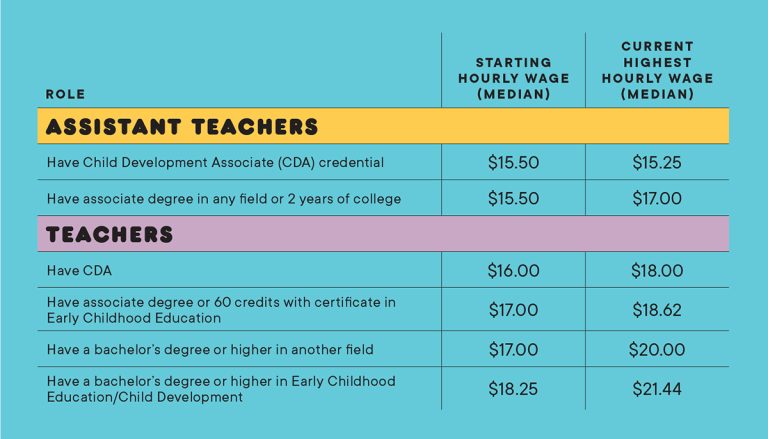
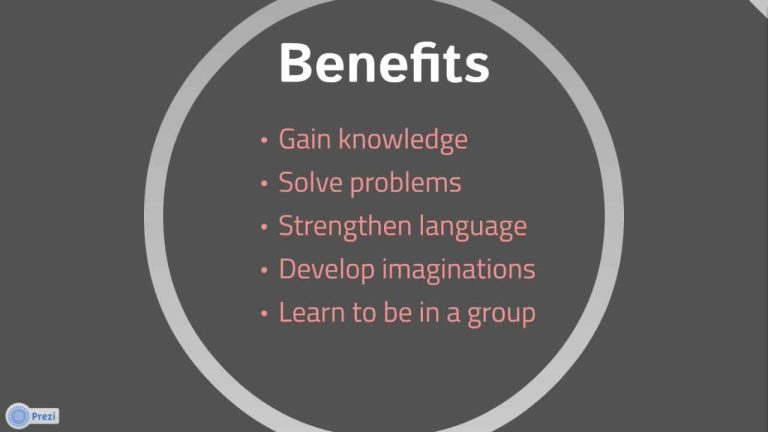
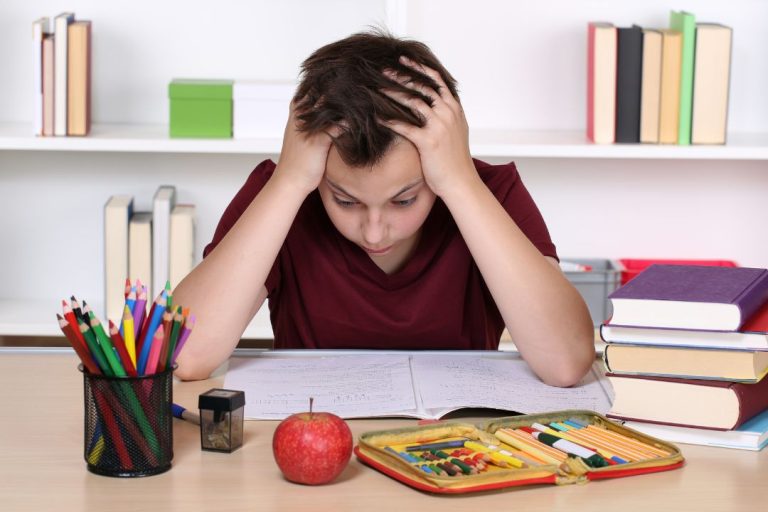
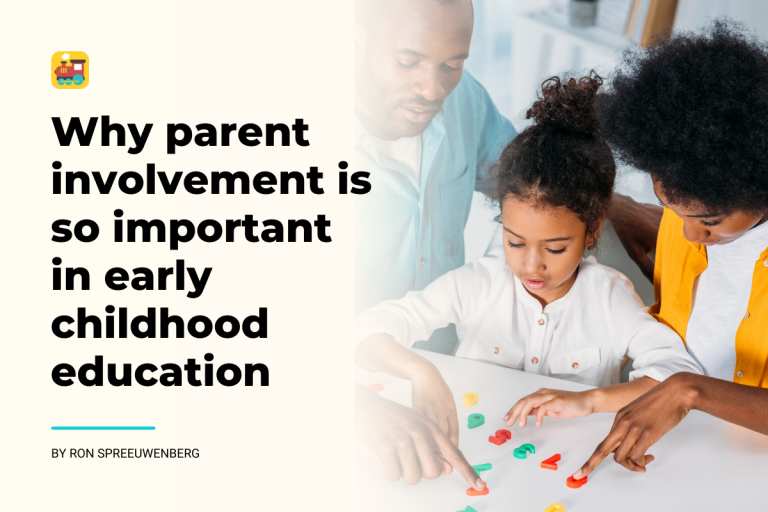

One Comment